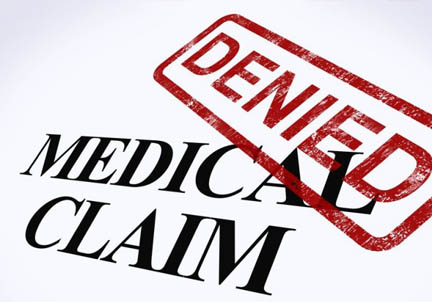The Confusing World of Growth Hormone Insurance Coverage and Denials
– Kathy Clark, PNP, PWSA (USA) Coordinator of Medical Affairs
It may feel like insurance companies are the enemy when they deny a medication that we feel is so important to our children. There are some complex explanations that I will list here that might be helpful.
Labeling and Indication
When the FDA approved growth hormone treatment (GHT) for children with Prader-Willi syndrome (PWS), it was specifically for “growth failure”. This treatment indication (technical term) has never changed. To relabel the medication for the health benefits we see in individuals with Prader-Willi syndrome, a drug company would be required to have new clinical trials to prove these effects, at great cost and very time consuming. Even though there are newer studies that demonstrate that GHT is helpful for much more than growth, when Pfizer (Pharmacia at the time) did the clinical trials, it was only to show the impact of GHT on growth. FDA approved GHT for PWS in 2000. Later, in the USA, Omnitrope was also FDA approved for the same reason – growth failure in PWS.
Any use besides that for growth would be considered “off label”. Some insurance companies will deny medication coverage when used “off label”. The FDA only approves the drug, and does not control the prescribing of that drug. When these are inexpensive medications, insurance companies typically do not deny coverage. But for growth hormone – a very expensive drug – when it is used “off label”, such as for improved metabolic balance, better muscle strength, or bone density – they can claim this defense and deny coverage.
While we may sing the praises of this medication, it did once have a “black box warning” which is a serious FDA requirement, due to sudden deaths of a few young children with PWS after the drug was first released. This history is why some physicians may not want to prescribe GHT, and why other growth hormone companies did not ask the FDA to give their drug (Humatrope, Norditropin, Nutropin, Saizen, Zomactin) the indication to be used for PWS. Risk avoidance, not a belief that only Genotropin or Omnitrope are safe for PWS, is probably why we won’t see these companies change their indication to include PWS. That does not mean their GH products are not safe or effective, or commonly used in PWS. These unfortunate deaths were immediately thoroughly researched and the PWS medical community felt reassured in proceeding to recommend GHT, as long as obstructive apnea and severe obesity were not present; we continue to recommend that GHT not be given during any time of serious breathing impairment.
Diagnosis
Most insurance companies require “proof” of the PWS diagnosis, so if your child had genetic testing somewhere outside the endocrinologist’s office, be sure they get a copy of the actual test result. “Prader-Willi Like” is not a diagnosis that will be covered. Growth hormone deficiency (GHD), if proven by three hour provocative blood testing(stimulation test), is a bonus for insurance purposes, but this test is very intensive and not required in PWS – unless your child is older and attempting to get coverage as an adult. (See below) Your doctor may have other reasons for recommending this testing. There is another FDA approved diagnosis for GHT – Small for Gestational Age. While some babies with PWS are born small in weight or length, this diagnosis is actually less likely to be covered than PWS or GHD, but is worth thinking about if you get stuck in the appeal process.
Denial and appeal – for children who are still growing
When GHT is denied, consider that step one, and not a final answer. There are so many reasons for a denial, including (I suspect) some automatic denials for any growth hormone request, something probably generated by a computer. Don’t give up yet – request that your doctor’s office send an appeal. Providers’ offices do this daily; you are not asking for a special favor. Prior authorization and appeals are daily work now in healthcare offices. Sometimes the appeal is quickly reversed. While these appeals can be tedious and take time, they are sometimes all that is needed. If the appeal is also denied – there is always the second level appeal, or your doctor can call for a peer-to-peer review. PWSA (USA) can help you with information for the appeal process.
It is also important to find out whether your insurance might cover this medication under the Major Medical rather than prescription plan – sometime this is the issue.
Formulary
Another obstacle can be the “formulary”. Most insurance companies have a list of the favored brand names of drugs they will approve. Insurance companies negotiate for the best prices, and a good price will make them select Brand A instead of Brand B. Since all GH products have the exact same GH molecule (the diluent, device, strength differ) it should not matter, in theory, which one they select. If your doctor has a favorite brand, the insurance company may deny that prescription but not inform the doctor that a different brand would be fully covered. It may be just that simple – have the doctor prescribe the insurance approved formulary growth hormone. Take a big breath and know that in a few years, your favorite brand could be the new formulary choice again.
Co-Insurance/Deductibles
Insurance companies can also save money by having deductibles or “co-insurance”. In this case, your family must spend money out of pocket until the preset amount is reached – say $2,000 per year – and only then will your insurance pay. Instead of spreading out the cost throughout twelve months, you must pay this big lump sum up front. If possible, sometimes it is wise to choose a more expensive insurance plan with no deductible so the burden is spread throughout the year; get out a calculator to help decide. Again, insurance may look like the enemy here, but if a family has no health issues, choosing a higher deductible keeps the cost of health care low for those who never need to have medication or lab testing – lucky families indeed.
Two Insurance Plans
What if your child has two insurance companies, perhaps one is a Medicaid plan? They might have two different formularies! Medicaid is supposed to cover whatever the primary insurance will not cover, but only if the drug is on their formulary. This creates a nice mess, but sometimes the pharmaceutical company can assist with the uncovered copay. The primary insurance gets to win the formulary battle. If both parents have insurance, the parent whose birthday comes first is the “primary”. You may want to think about whether having your child covered by two insurance programs is really necessary, or a just another headache.
Medicaid
Medicaid is a federal program for children’s health implemented at a state level; it is based on income, and may be a secondary insurance for some families with basic coverage. Many states offer Medicaid HMO’s in addition to “straight Medicaid”. Most Medicaid prescription coverage is strictly by the FDA guidelines – which is terrific if your child fits this profile, a child with PWS who is growing poorly. There may be other advantages, such as therapies and supplies, to having Medicaid for your child with PWS, so check with your local department.
Pharmacy companies and financial assistance programs
The pharmaceutical companies are sympathetic to this messy situation, and in the past had very generous programs to cover copays and coinsurance, and sometimes even the entire cost of the drug. Unfortunately, these programs have become more stringent. By law, the drug manufacturer cannot give free or discounted drugs. A pharmacy may not tell you there is a discount, but you may ask for one – the burden is on the consumer to ask. Drug companies must set up a separate foundation to handle patient assistance. You must submit financial information and your doctor’s office will submit copies of the denial letter and at least one appeal of that denial. Sometimes there needs to be a second level appeal. The paperwork for this process is quite substantial and must be repeated regularly.
Odds and ends
Other reasons for denials: GHT is sometimes only covered if it is prescribed by a board certified pediatric endocrinologist. GHT may be denied because the office used the wrong form – forms are constantly updated. If you have not seen the provider regularly, the growth records are outdated and the insurance may say “the child on GHT has not grown in six months”. Insurance may require a bone age to prove that your child can still grow, even if your child is a baby. Insurance may want the original diagnostic genetic test, even if the child is a teenager who was diagnosed at birth. Another hint – if your child “has an adverse event” on the formulary drug, some insurance companies will then let you go back to the drug your child was doing well on. What is an adverse event? Poor growth, poor energy, headaches, or maybe fighting the injection because it feels different – this should be reported as “injection pain” and not stubbornness.
Fully grown teens and adults
Here is the really murky water. Since the FDA clearly states “growth failure” – insurance companies can use this language to stop coverage when a person is fully grown. One way to get around this is to change the diagnosis to “growth hormone deficiency – adult”. This is complicated to do, and can’t be done without testing and time. There is a risk that your child is NOT growth hormone deficient, so this must be fully discussed with your doctor. Your child would need to be off GHT for 6 months to a year before having the stimulation test to prove growth hormone deficiency. Even if your child achieved a good height on GHT in the early years, he or she will often still test growth hormone deficienct on the stimulation test if done properly. The first approach should be to appeal the denial– stating all of the positive effects of the treatment, including the professional articles and scientific evidence. Follow the appeals right to the end. If you need a letter of support from PWSA (USA) and articles documenting the benefits of GHT, our support counselors can help with that; just give us a call so we can discuss options. Remember, we are here to support you throughout your child’s life.





 Jennifer Bolander has been serving as a Special Education Specialist for PWSA (USA) since October of 2015. She is a graduate of John Carroll University and lives in Ohio with her husband Brad and daughters Kate (17), and Sophia (13) who was born with PWS.
Jennifer Bolander has been serving as a Special Education Specialist for PWSA (USA) since October of 2015. She is a graduate of John Carroll University and lives in Ohio with her husband Brad and daughters Kate (17), and Sophia (13) who was born with PWS. Perry A. Zirkel has written more than 1,500 publications on various aspects of school law, with an emphasis on legal issues in special education. He writes a regular column for NAESP’s Principal magazine and NASP’s Communiqué newsletter, and he did so previously for Phi Delta Kappan and Teaching Exceptional Children.
Perry A. Zirkel has written more than 1,500 publications on various aspects of school law, with an emphasis on legal issues in special education. He writes a regular column for NAESP’s Principal magazine and NASP’s Communiqué newsletter, and he did so previously for Phi Delta Kappan and Teaching Exceptional Children. Evan has worked with the Prader-Willi Syndrome Association (USA) since 2007 primarily as a Crisis Intervention and Family Support Counselor. Evans works with parents and schools to foster strong collaborative relationships and appropriate educational environments for students with PWS.
Evan has worked with the Prader-Willi Syndrome Association (USA) since 2007 primarily as a Crisis Intervention and Family Support Counselor. Evans works with parents and schools to foster strong collaborative relationships and appropriate educational environments for students with PWS. Dr. Amy McTighe is the PWS Program Manager and Inpatient Teacher at the Center for Prader-Willi Syndrome at the Children’s Institute of Pittsburgh. She graduated from Duquesne University receiving her Bachelor’s and Master’s degree in Education with a focus on elementary education, special education, and language arts.
Dr. Amy McTighe is the PWS Program Manager and Inpatient Teacher at the Center for Prader-Willi Syndrome at the Children’s Institute of Pittsburgh. She graduated from Duquesne University receiving her Bachelor’s and Master’s degree in Education with a focus on elementary education, special education, and language arts. Staci Zimmerman works for Prader-Willi Syndrome Association of Colorado as an Individualized Education Program (IEP) consultant. Staci collaborates with the PWS multi-disciplinary clinic at the Children’s Hospital in Denver supporting families and school districts around the United States with their child’s Individual Educational Plan.
Staci Zimmerman works for Prader-Willi Syndrome Association of Colorado as an Individualized Education Program (IEP) consultant. Staci collaborates with the PWS multi-disciplinary clinic at the Children’s Hospital in Denver supporting families and school districts around the United States with their child’s Individual Educational Plan. Founded in 2001, SDLC is a non-profit legal services organization dedicated to protecting and advancing the legal rights of people with disabilities throughout the South. It partners with the Southern Poverty Law Center, Protection and Advocacy (P&A) programs, Legal Services Corporations (LSC) and disability organizations on major, systemic disability rights issues involving the Individuals with Disabilities Education Act (IDEA), Americans with Disabilities Act (ADA), and the federal Medicaid Act. Recently in November 2014, Jim retired.
Founded in 2001, SDLC is a non-profit legal services organization dedicated to protecting and advancing the legal rights of people with disabilities throughout the South. It partners with the Southern Poverty Law Center, Protection and Advocacy (P&A) programs, Legal Services Corporations (LSC) and disability organizations on major, systemic disability rights issues involving the Individuals with Disabilities Education Act (IDEA), Americans with Disabilities Act (ADA), and the federal Medicaid Act. Recently in November 2014, Jim retired.